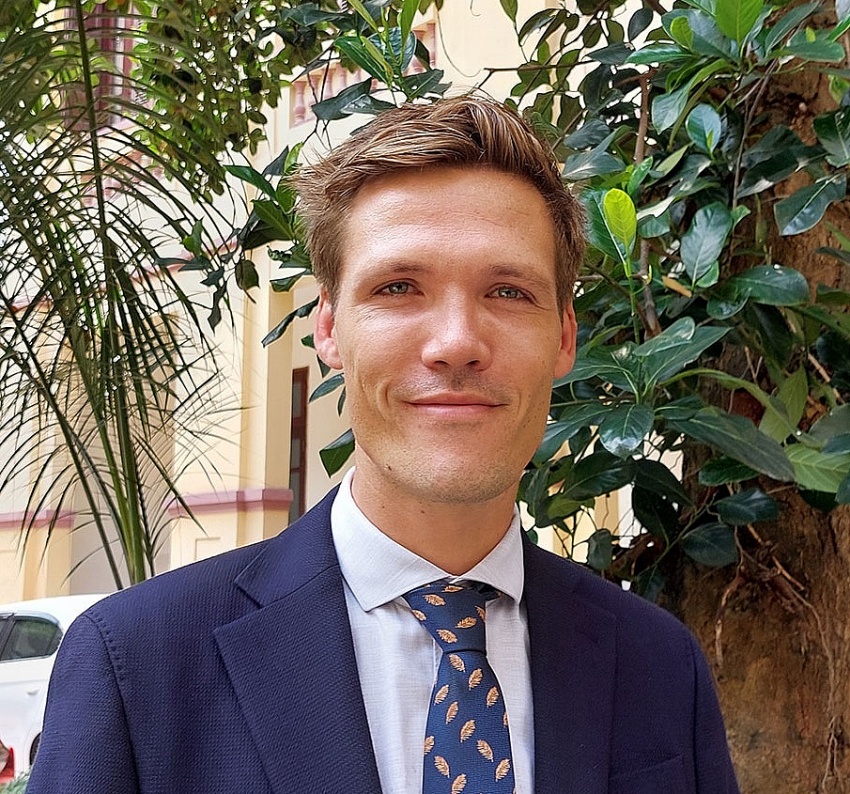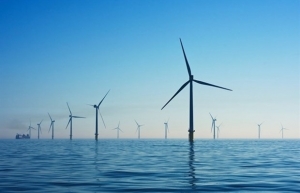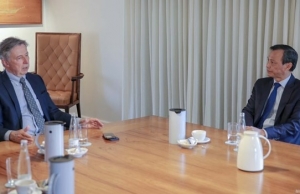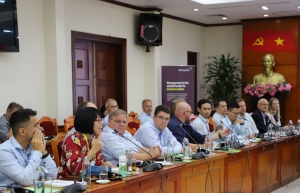Developing a robust circular economy through the best practices of Denmark
Can you share some of your experiences in developing circular business models in Denmark?
Denmark has been committed to a green transition and a greener economy for a long time. Some of the things we have been focusing on for decades, for example, involve recycling and utilising waste streams. We have identified significant opportunities for these areas to actually contribute to economic and environmental development.
 |
| Carsten Baltzer Rode, deputy head of Mission at the Embassy of Denmark in Vietnam |
The transition to a circular economy requires a holistic approach, and it cannot just be a job for the central authorities. It also engages businesses, civil society, and academic institutions. The Danish government has long been working very closely with the private sector to make sure they also feel ownership of circular economic models.
More concretely, in 2016, Denmark established its National Advisory Board for Circular Economy, consisting of 12 business leaders whose role involves coming up with recommendations on how the government can create and support the transition towards a circular economy.
The central idea is to seek collaboration between authorities and private businesses to make recommendations for the government to implement. So this cross-sectoral understanding, and addressing national legislative framework and barriers, are really key.
Another tangible example is something in Denmark we call Circularity City. It is an initiative that was established in 2017, which addresses the construction community in particular, and the municipality involved has played a critical role in that. That’s another important factor to engage on a local level.
Circular economic development in Denmark is very business driven. Without those businesses, it will not be successful. So, a key thing is to encourage and enable companies to commit to developing circularity as a core part of their business.
What are your recommendations to spur the circular economy and circular business development right away?
I can highlight two things. First is raising awareness of the need for circular businesses. It’s important to engage the whole of society and not just central authorities – but also businesses, citizens, and academic institutions. Everyone needs to feel that they have ownership and a role to play in developing a circular economy.
The second aspect is to adapt and develop regulations and policies, as well as break down barriers. The introduction of relevant materials, such as the “Circular Business Models: International Experience and Application in Vietnam” publication, compiled by the Central Institute for Economic Management with support from consultants, is a necessity. The report seeks to address the barriers so that they can be broken down and that is vital. So is putting in legislation that makes it more attractive.
What can the Vietnamese government do to further accelerate circular economy development, and how can Denmark support those efforts?
The aforementioned report provides a lot of really good recommendations to adopt. In addition to that, looking to other countries is always a really good idea when it comes to these issues. Denmark is a front runner, but you can also look at Germany or Sweden, and there are a lot of good experiences to be taken from there.
Denmark has done a few things that could inspire Vietnam. We have a one-stop-shop website that is used to connect Danish circular economic actors, which is a very helpful platform. There are also a lot of white papers and other documents.
What is more, the Leading Nordic Circular Economy Forum will be held in April 2023 in Copenhagen. It will be a crucial event about waste and resource management, and that could also be a good opportunity to take part in and get inspired, especially on waste and utility management.
 | Danish Group to invest up to 13.6 billion USD in offshore wind farm in Hai Phong Denmark’s Ørsted Group, the world's largest corporation in the wind power industry, has proposed an offshore wind power plant in the northern port city of Hai Phong, with an estimated investment of between 11.9 billion USD to 13.6 billion USD. |
 | Denmark seeks new cooperative opportunities in Vietnam Many Danish enterprises, especially small and medium-size ones, want to seek opportunities for cooperation with Vietnam and Asian countries, according to leaders of Asia House, a a Danish organisation that connects Denmark and Asia. |
 | Denmark and Vietnam strengthen cooperation in agri-food The Danish Agriculture and Food Delegation to Hanoi and Ho Chi Minh City from August 16-19 exchange opportunities for cooperation with their Vietnamese partners. |
What the stars mean:
★ Poor ★ ★ Promising ★★★ Good ★★★★ Very good ★★★★★ Exceptional
Related Contents
Latest News
More News
- SK Innovation-led consortium wins $2.3 billion LNG project in Nghe An (February 25, 2026 | 07:56)
- THACO opens $70 million manufacturing complex in Danang (February 25, 2026 | 07:54)
- Phu Quoc International Airport expansion approved to meet rising demand (February 24, 2026 | 10:00)
- Bac Giang International Logistics Centre faces land clearance barrier (February 24, 2026 | 08:00)
- Bright prospects abound in European investment (February 19, 2026 | 20:27)
- Internal strengths attest to commitment to progress (February 19, 2026 | 20:13)
- Vietnam, New Zealand seek level-up in ties (February 19, 2026 | 18:06)
- Untapped potential in relations with Indonesia (February 19, 2026 | 17:56)
- German strengths match Vietnamese aspirations (February 19, 2026 | 17:40)
- Kim Long Motor and AOJ Suzhou enter strategic partnership (February 16, 2026 | 13:27)

 Tag:
Tag:




















 Mobile Version
Mobile Version